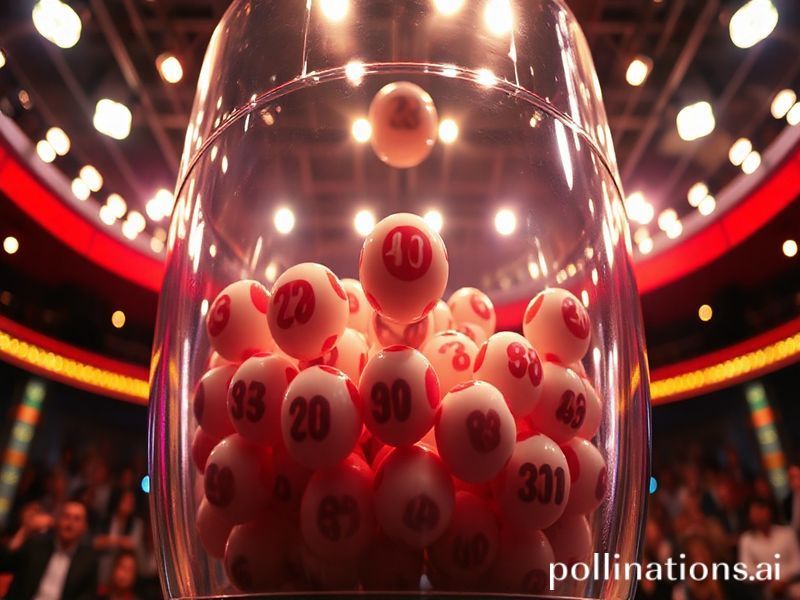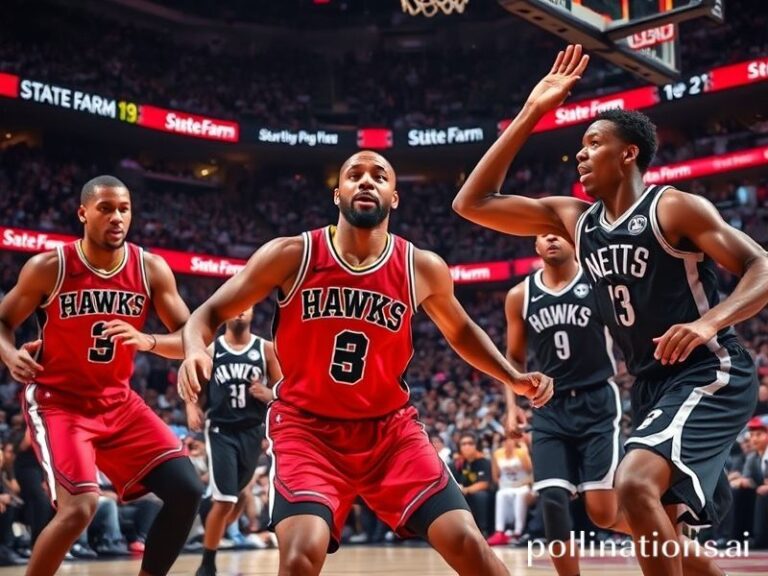powerball drawing
The Powerball Drawing: A Global Lottery Where Everyone Loses, Yet Still Buys Tickets
By the time the white balls tumbled out of the acrylic drum in Tallahassee last night, Tokyo’s morning commuters were already checking the results on their phones between sardine-can train stops and Lagos’s night-shift nurses were placing proxy bets on WhatsApp before the generator cut out. The $1.3-billion jackpot—roughly the GDP of Belize on a good day—was never really about the United States; it was the world’s most honest foreign-aid program, voluntarily funded by people who can least afford it.
Consider the optics: a single American lottery now commands larger cash reserves than half the world’s sovereign wealth funds. Sri Lanka, currently bartering tea for Iranian fuel, could clear its Chinese debt with one lucky Quick Pick. Haiti’s earthquake reconstruction budget looks like vending-machine change next to Wednesday’s annuity option. Yet the same international institutions that lecture developing nations on fiscal prudence happily let Powerball’s app geolocate your VPN so long as you swear you’re physically standing in Kentucky when you click “buy.”
The mechanics are a geopolitical satire in themselves. A ticket bought in Finland via a courier service registers as domestic revenue for U.S. education—because nothing says “school funding” like a Nordic pensioner outsourcing his retirement plan to a warehouse in Delaware. Meanwhile, cryptocurrency exchanges from Singapore to El Salvador list “PBUSD” derivatives so that even where gambling is illegal, citizens can still short the dreams of strangers. The blockchain, that great liberator of capital, is now just a very expensive lottery ticket printer.
Psychologists call it “availability bias”; economists call it a regressive tax; your cousin in Caracas calls it Tuesday. Inflation has turned bolívars into origami, so why not swap them for a JPEG of an American ping-pong ball? The same logic applies from Cairo’s tea stalls to Manila’s call centers: Powerball is the only hedge fund that accepts loose change. Never mind that the odds—1 in 292.2 million—are statistically worse than being reincarnated as Beyoncé. Hope, unlike treasury bonds, still trades at par.
And then there’s the diplomatic angle. When the jackpot crests a billion, foreign ministries issue travel advisories not for terrorism but for ticket tourism. Canadians flood Buffalo like it’s a Black Friday refugee crisis; Mexican border towns run shuttle buses labeled “El Sueño Americano” with Wi-Fi just strong enough to refresh the Mega Millions page. The irony? Customs seizes Kinder Surprise eggs as choking hazards yet waves you through with a fistful of paper slips promising infinite cholesterol of the soul.
Of course, the winner—should one emerge—will instantly become a one-person IMF. Overnight, a forklift operator from Des Moines will wield more liquid capital than Namibia. Financial advisors in Zurich already have his dossier: recommended allocations in European football clubs, Dubai real estate, and a discreet Maltese passport. The poor fellow thinks he’s buying a ranch; the world sees a new frontier for kleptocrats to park their yachts.
Meanwhile, the losers—roughly 99.9999997% of participants—return to their regularly scheduled austerity. Greeks who skipped rent to play will watch the headlines in a café that no longer serves coffee because electricity costs too much. Bangladeshi garment workers who pooled 1,000 takas for a syndicate ticket will instead pay next month’s school fees with the same money, now minus the exchange rate. The global poor, ever generous, have again donated to the rich in exchange for a bedtime story.
And yet, come Saturday, the drum will spin again. Somewhere an algorithm will geo-target an ad in Arabic promising “Your ticket to Mars, or at least to Michigan.” Because if the last decade taught us anything, it’s that people will bet on anything—elections, viruses, even humanity’s attention span—so long as the jackpot is large enough to forget the odds.
In the end, Powerball is the world’s most inclusive scam: a multinational prayer circle where we all agree to pretend money solves everything, briefly, before returning to our respective collapses. And really, who among us doesn’t enjoy a little eschatological cosplay for two dollars?







